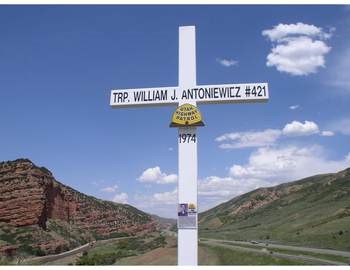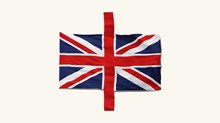The U.S. Supreme Court let stand lower court decision ordering the removal of 13 roadside crosses in Utah. Justice Clarence Thomas issued a rare dissenting opinion on the Court's Monday decision to not hear two cases involving memorials for fallen state police officers. For Thomas—and several Christian legal organizations—the case was a missed opportunity for the court to clarify the standards for judging public display of religious symbols.
The Supreme Court denied the case without comment. With thousands of appeals to consider, the Court rarely offers an opinion or explain its reasoning when it denies a case. A justice offers a dissent in a denial in only a handful of cases.
Thomas said the Court should have taken up the case to help clear up the standards for judging whether a public or governmental display religious symbol is constitutional. Lower courts use different standards. In 2005, the Court ruled on two cases involving the display of the Ten Commandments. On the same day, the Court decided that one display in Texas was constitutional; another display in Kentucky was declared unconstitutional. Thomas noted the various standards used by lower courts due to the lack of a clear guidance from the high Court.
"Today the Court rejects an opportunity to provide clarity to an Establishment Clause jurisprudence in shambles," Thomas wrote.
In previous court cases, Thomas has advocated the position that the First Amendment's ban on the establishment of religion applies to the federal government only. State and local governments are not restricted in the same way, according to Thomas.
The Court, however, has recently used the so-called endorsement test for religious symbols. A religious symbol can be displayed on public property as long as 1) it is not an endorsement of a religion or 2) a reasonable person could not interpret the symbol as an endorsement. The Utah Highway Patrol did not pay for the crosses, and it is on record as not endorsing the crosses as religious symbols. The question is whether the crosses could still be interpreted as being endorsements of Christianity.
In a decision last year, the Court gave a cross memorial as an example of acceptable religious symbols on government property. "A cross by the side of a public highway marking, for instance, the place where a state trooper perished need not be taken as a statement of governmental support for sectarian beliefs," wrote Justice Kennedy in the majority opinion. (More CT coverage of cross decisions.)
The Alliance Defense Fund (ADF) attorney Byron Babione said, "The Supreme Court's decision not to hear this case is baffling in light of its comments just last year that individualized memorial crosses honoring fallen troopers do not amount to a government establishment of religion." Babione and the ADF helped represent those who paid for and maintained the crosses.
The Utah crosses are not plain white crosses on the roadside. Each cross stands 12 feet high with a six foot wide crossbeam. They each feature the name and rank of the officer, a picture of the officer, and a plaque listing details about the officer and his death. The crosses also include the symbol of the Utah Highway Patrol and some of the crosses are placed on Utah Highway Patrol property, not by a highway. The lower court concluded that a person could reasonably interpret the crosses as endorsements of Christianity.
The decision was criticized by some evangelical legal groups who believe that the endorsement test should be abandoned. The establishment clause, they argue, should allow government endorsement so long as it does not involve coercion.
"Freedom of religion means, in part, that no government should discriminate against those who, using their own funds, wish to erect a non-invasive religious display on public property," said Family Research Council's Ken Klukowski.
Even if the endorsement test was adopted, the ADF argued that the crosses could not be interpreted as religious symbols. American Atheists national legal director Edwin Kagin said this argument should be "repugnant" to Christians.
"The attitude that the cross is not a Christian symbol should be repugnant to all of those believers who believe it to be a sign of the son of god [sic] having died on a cross to save everyone who believed in him and that, as he conquered death, so will those who believe this story conquer death. That is what the crosses are to them," Kagin said.
According to the ADF's brief, that the crosses were memorials and symbols of sacrifice; they did not represent Christianity.
"The [Utah Highway Patrol Association] chose the cross shape because it is the only symbol, given its historical use, that could simultaneously communicate messages of roadside death, commemoration, and highway safety," the ADF brief said.
Image used with permission from the Alliance Defense Fund.

Support Our Work
Subscribe to CT for less than $4.25/month



















